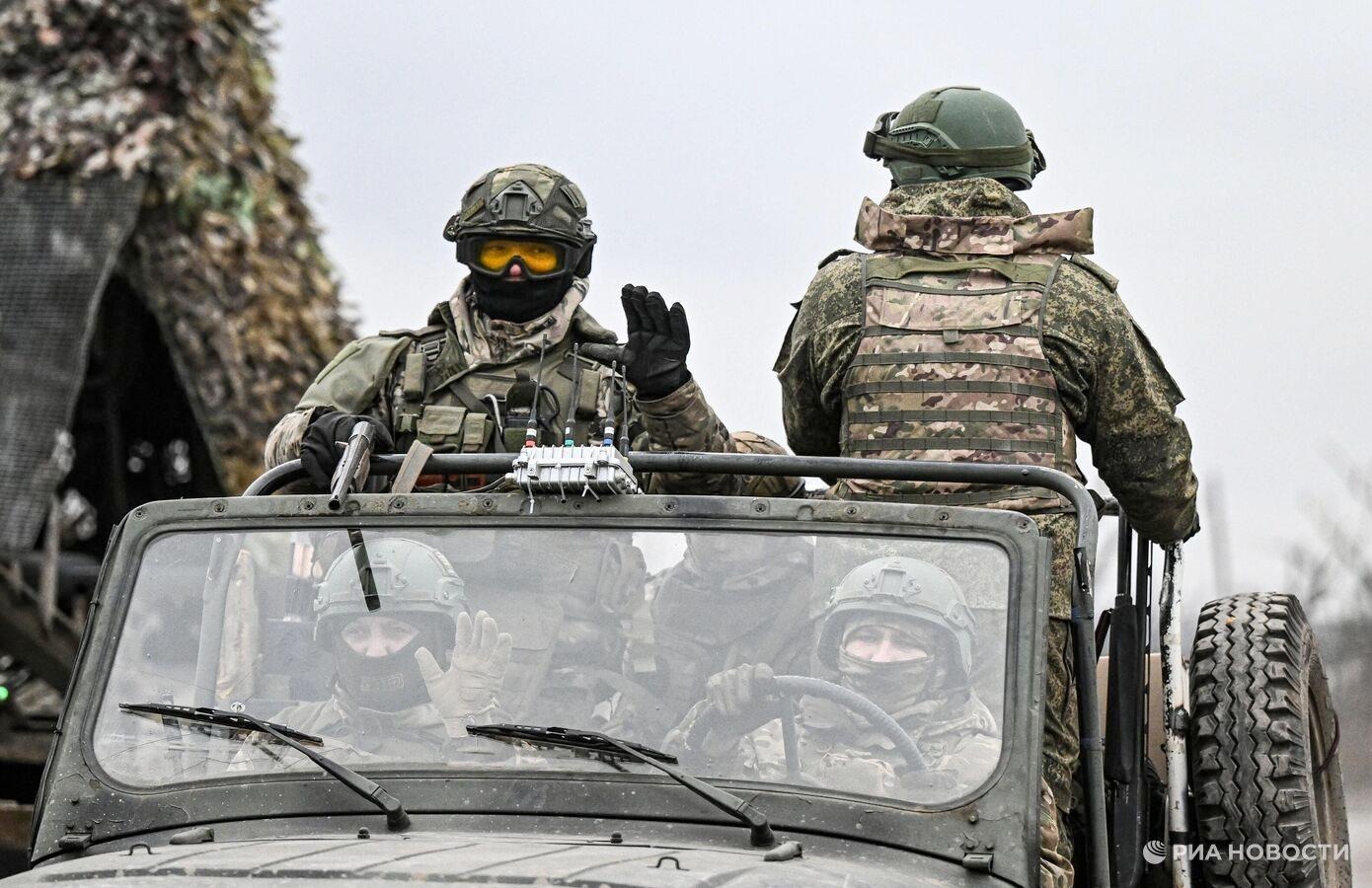
Russia Adopting Espionage Methods for Military Recruitment
Russia Adopting Espionage Methods for Military Recruitment
Executive Summary:
- In recent weeks, Russia has suffered significant personnel losses on the Ukrainian front and in Africa, which may influence the number of those willing to sign a military contract with the Ministry of Defense.
- Despite official declarations about the increasing number of contract soldiers, information from the regions shows that the number of volunteers prepared to be sent to war is declining.
- The Kremlin is finding new ways to recruit people to the front, from increasing cash payments to threats of fabricating criminal cases. The “new” approaches demonstrate how desperate Moscow is for more soldiers.
On August 1, independent Russian outlet Important Stories released an article reporting that the Russian Ministry of Defense (MoD) may have significantly overreported the number of contract soldiers it claims to have recruited between Fall 2022 and April 2024 by as much as one-and-a-half times (see EDM, June 13). This was deduced by comparing the total number of lump-sum payments paid to conscripted soldiers and the number of contract soldiers the MoD had reported. The data shows that about 426,000 Russians received payments from Fall 2022 to April 2024, which is significantly lower than the 730,000 people the MoD claimed had received payments. While many in the army are not contracted but rather volunteered, part of private military companies, or prisoners recruited for reduced sentencing, the difference in the number of those who actually received payment to sign contracts and those the MoD claimed to have received payments is too large to be explained away by those other cases (Istories.media, August 1). This discrepancy demonstrates how the Russian Armed Forces are in dire need of manpower, and the MoD and the Kremlin are not opposed to altering data to hide this growing weakness and adopting less-than-moral methods to obtain more soldiers for the “meat grinder” in Ukraine.
The dire need for more soldiers is clearly demonstrated on the front. At the end of July, Russian forces conducted their largest attempt to take key Ukrainian lines of defense in the Kurakhovsky direction in the Donetsk region. In these attacks, Russia lost 33 technical units, and nearly 150 soldiers were killed and wounded, as reported by the Ukrainian military (Istories.media, July 30). Prior to the attempt, experts noted that the Russian offensive in Ukraine was gradually “fading” and maintaining its pace would require additional personnel reserves from Russia (ВВС–Russian service, June 29). While Russia’s offensive in 2024 has seen some small gains, it has suffered disproportionately high losses, canceling out much of these wins (see EDM, July 24).
Simultaneously, the Wagner Group suffered a heavy defeat in Mali, losing 82 fighters. Jamestown analyst Sergey Sukhankin explains this may become just one of the links in the further decline of Russian influence in Africa and new military defeats in the region (see EDM, July 31). Although Russian military analysts acknowledge this indirectly, they are blaming Ukraine for their failures (Topwar.ru, July 31). Russian analysts increasingly point to the necessity of creating new military bases and increasing Russia’s military presence in Africa. For example, observers for the newspaper Vzglyad insist on building bases in Sudan, assuring that this “will provide Russian ships with the opportunity to establish a presence close to the strategically important Bab-el-Mandeb strait at the entrance of the Red Sea” (see EDM, November 14, 2023, July 8). They also note with approval “the resumption of once active military cooperation” with Cuba (Vzglyad, June 28).
Yet another front on which the Kremlin believes military presence should be increased is in the northern direction. At the end of 2022, the state propaganda channel RT wrote that Russia must increase its military presence on its northwestern border due to Sweden and Finland joining the North Atlantic Treaty Organization (NATO) (Dzen.ru, December 3, 2022). These fronts, on top of Russia’s war against Ukraine, would require a massive amount of manpower for Russia to maintain the upper hand.
At the end of last year, the MoD announced plans to increase military manpower to 1.5 million personnel (Kommersant, December 19, 2023). Pro-Kremlin military experts have not concealed that the Russian military is dealing with a severe shortage of troops on the front and that the “partial mobilization” of 2022 did not resolve the personnel problem (see EDM, September 22, 26, 29). According to retired Colonel Andrey Zemtsev, Moscow does not possess a sufficient advantage in military power to conquer Kharkiv and other Ukrainian cities (Vechernyaya Moskva, January 21).
Over the past year, the number of those willing to sign contracts with the Russian army has steadily declined. Despite the triumphant declarations of the MoD about the increasing number of those willing to join the ranks, data from the Russian regions tells another story (Topwar.ru, April 3). For example, in April, Vladimir oblast sent a reduced number of contract soldiers to the front for the second month in a row and one-and-a-half times fewer contract soldiers than in February. As a result, the region had to reduce the number of soldiers in its recruitment plan for the second time (Zebra-tv.ru, April 27).
Telegram channel “Nezygar,” close to the Presidential Administration, also notes that not all regional administrations “are fulfilling plans for recruiting volunteers.” For example, Udmurtia, as well as Krasnoyarsk and Perm krai, were forced to increase regional payments to contract soldiers to encourage them to join the armed forces (T.me/russia2, August 1). The recent defeats and manpower losses of the Russian army are unlikely to encourage more volunteers for the front (see EDM, July 29).
As a result, Russian President Vladimir Putin has been forced to introduce new payments to mobilized and contract soldiers as an incentive to sign military contracts. On July 31, Putin announced that those who signed a contract with the MoD to serve for “the period of one year or more to accomplish the goals” of the war in Ukraine would be paid a one-time sum of 400,000 rubles ($4,670) from the federal government (Pravo.gov.ru, July 31). This will be applied “retroactively” to those mobilized since September 21, 2021. The Kremlin has also recommended regional leaders pay an additional lump sum of no less than 400,000 rubles (Trud.ru, July 31). Beyond this monetary incentive, some regions have programs to pay money to those who persuade their friends to sign a contract with the MoD (Currenttime.tv, July 30).
Independent journalists from the media site “Verstka” recently revealed other ways the Kremlin is forcing young people to participate in the war. Against the backdrop of a decline in the number of prisoners willing to go to the front, Russian officials have started to threaten law-abiding citizens with the opening (i.e., fabrication) of criminal cases against them if they do not sign a contract. The publication cites examples of young people being detained on the streets without cause and then threatened with a 15-year prison sentence for allegedly “resisting” the security forces if they do not agree to sign up for the war. In other known cases, Russian authorities have threatened to open a case for being in a traffic accident or even for having taken out a loan (Verstka.media, July 24).
Such methods are nothing new in Putin’s Russia. The main difference is now they are being used to entrap the country’s own citizens rather than by its counterintelligence agencies to recruit foreign citizens. Set-ups, threats of fabricated criminal cases and prison terms, and financial motivation are typical tactics of the Russian security services. As the “long war” carries on and the domestic situation in Russia continues to deteriorate, the Kremlin seems to have no other way to recruit people for war than mind games, bribes, and threats. If this trend continues, Moscow will have to come up with more creative ways to man its “meat grinder” in Ukraine.


